11th Annual Simulation Conference
Section outline
-
-
Keynote Speaker—Dr. Catherine Morse, “Speaking Up With Good Judgment”
Description: Speaking up for patient safety is a skill that all health care providers agree is essential. Despite this the act of speaking up is a challenging and difficult. The gap between telling providers and students to speak and then being able to speak up in real and simulated patient cases is where we need to be working to positively impact the rate of speaking up. Speaking up with Good Judgment will be presented as a solution.
Dr. Morse obtained her BSN from the University of Calgary, Alberta; her MSN as a clinical nurse specialist in critical care from San Diego State University; her Post- masters certificate as an Adult Nurse Practitioner from California State University, Long Beach and her PhD from Villanova University. She is board certified as an Adult and Acute Care Nurse Practitioner. She is a past Jonas Scholar and National League of Nursing Sim Leader. She currently serves as the VP of membership for INASCL (International Nursing Association in Simulation and Clinical Learning)
Dr. Morse currently works at the Center for Medical Simulation in Boston as the Assistant Director of educational leadership and international programs. She holds a faculty appointment at Harvard Medical School and Massachusetts General Hospital.
Her current interests include faculty development in healthcare simulation and creating cultural change through simulation.
-
This presentation will present different models of simulation faculty development. Learners will engage in a discussion of essential skills for simulation faculty and strategize how to overcome barriers to faculty development.
-
This presentation will provide a structured process for debriefing the debriefer after conducting a debriefing with learners. The Debriefing Assessment for Simulation in Healthcare (DASH) will be presented and discussed as a tool to facilitate the learning conversation. Participants will have the opportunity to practice elements of debriefing the debriefer.
-
This presentation will offer a variety of time and money saving techniques that can be used during simulation lab operations. Solutions to problems such as organization, storage, and quick room turnover will be discussed. Learners will reseal and repackage an IV back for reuse at the end of the presentation.
-
This session will identify the current guidelines related to simulation design as well as inform participants of the advantages and disadvantages of using instructor written versus pre-purchased scenarios in simulations. The findings of the research study on student learning in simulation based on instructor engagement in design will be discussed.
-
This interactive session will allow you to explore the essentials of facilitating effective simulation experiences based on best practice evidence in simulation science. A review of best practice standards with a focus on the establishment of psychological safety in the simulation environment and needed staff/faculty preparation for simulation will be presented.
-
Simulated Clinical Experiences: Ready, Set, Go - Donna Badowski, DNP, MSN, RN CNE and Kimberly Oosterhouse, PhD, RN, CCRN-K, CNE
The IOM report (2010) makes a call to nursing education to shift from task –based proficiencies to higher level competencies; patient-centered care, teamwork and collaboration, evidence-based practice, quality improvement, safety, and informatics. Studies have shown improved skill performance using deliberate practice within simulation (Ackerman, 2009; Alinier, Hunt, Gordon, & Harwood, 2006). Benner and colleagues (2010) define situated coaching as a “signature pedagogy” (p. 30) in nursing education whereby educators coach students through experiences. Himes and Ravert (2012) developed a modified approach to situated coaching, which includes situated cognition with peer coaching, in their study on fundamental skills acquisition. A national study by Hayden et al. (2014) showed simulation can be as effective as the traditional clinical experience for pre-licensure nursing students. The purpose of this presentation is to demonstrate how deliberate practice with peer coaching embedded in simulated clinical experiences can effectively be used as an alternate to traditional clinical experiences.
-
This presentation will discuss the building of our IPE (Interprofessional Education) Simulation we do yearly called “Hospital Day” which involves Practical Nursing, Radiography, Surgical Technology, Medical Office, CNA, and AUA programs within our campus. It will also describe how it progressed into a yearly Mass Casualty exercise involving our community partners such as EMSA, Fire, Police and Homeland Security. Participant will learn what was successful and the challenges faced to help them create their own IPE Simulations.
-
SPs are an easy, cheap and very acceptable simulation technique for ALL healthcare providers. We will cover the why and how we should be using SPs in health education programs.
-
Simulation is quickly becoming the industry standard in all aspects of healthcare education, whether it be a mass casualty scenario for EMS, care of a sick patient in a hospital setting, anesthesia in the OR, or a ventilator in an ICU. Realism in the simulated experience helps make the scenario more of a true learning environment. The more realistic we can make it (the patient…the scenario…the environment…the equipment), the better the learning experience becomes for the student. This session will be interactive and hands-on learning of a few simple steps to improve realism through moulage.
-
Simulated Patient Care Experience (SPCE) for RN/PN Nursing Education Programs GuidelinesTerri Walker, MSN, RN, OBN Education Consultant
An overview of the newly adopted OBN Simulation Guidelines will be presented by Terri Walker, MSN, RN OBN Education Consultant

